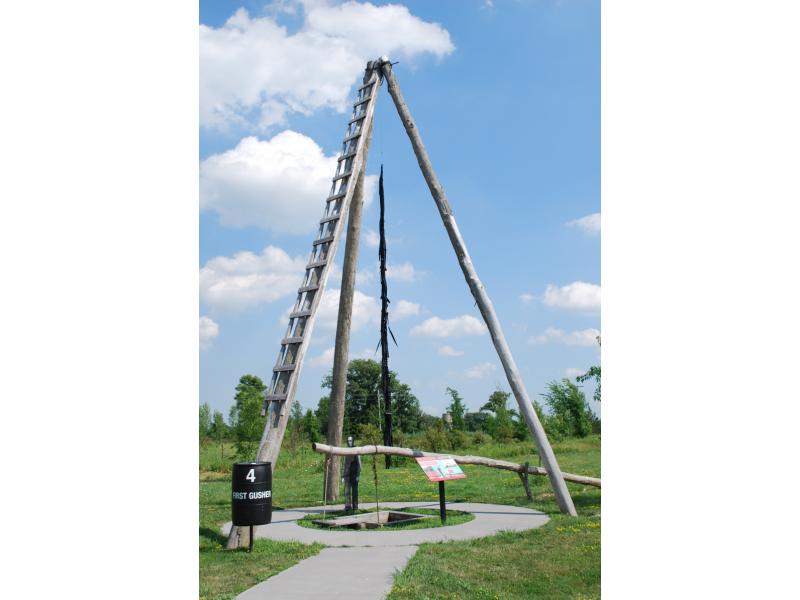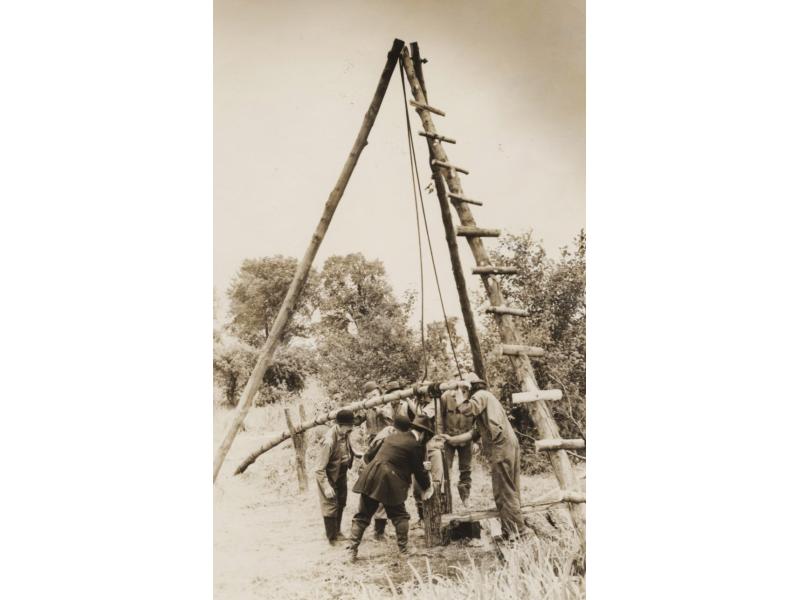When James Miller Williams dug the first commercial oil well in Oil Springs in 1858, he dug by hand through the mud and top soil and oil seeped from the bedrock into the well. The pit was lined with wooden cribbing in order to keep the clay walls from collapsing, a task easily done with wood found nearby.
An early method of drilling deeper for oil, called the "spring-pole", was introduced to the industry by Williams in order to reach the oil deposits found beneath the bedrock layer. These later wells would still be hand-dug through the wet clay to bedrock. Then, a heavy metal drill bit or chisel was attached to a rope and suspended over the dug-well by a wooden pole (a spring-pole). This pole was balanced on a support near the centre and tied to the ground at one end. A second rope was attached to the opposite end, near the opening of the well, and affixed to a treadle which a man would jump on, lifting and pounding the drill bit into the rock below. A wooden tripod was also erected over the well for leverage in order to hoist the drill bit or any rods inside the well out for repair.
This early method of drilling was very time-consuming and laborious. In 1862, Hugh Nixon Shaw struck Canada's first gusher in Oil Springs. He used the spring-pole method to drill his well, working 18 hours a day for six months, finally reaching oil at a depth of 62 meters.



 Spring-pole which has been reconstructed at the location of the first commercial oil well in North America.
Spring-pole which has been reconstructed at the location of the first commercial oil well in North America.  In a celebration for the centenary of the first commercial oil well in North America, a group of men recreate how the well was drilled using the spring-pole method.
In a celebration for the centenary of the first commercial oil well in North America, a group of men recreate how the well was drilled using the spring-pole method.
Add new comment